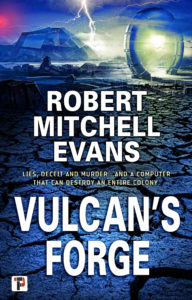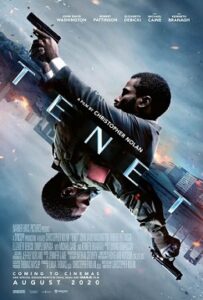Talking About My Novel
Late March 2020, right as the pandemic strangled the world into a global shutdown, FlameTree Press published my debut science-fiction novel Vulcan’s Forge. It is not a Star trek tie-in novel, though as a fan of the series from the 70s onward I have enjoyed a few, nor is it about a champion racehorse or a communist plot to erupt volcanoes but rather a blend of SF and film noir about stellar colonization and a critique of idealized 50s America.
In the book, following the destruction of the Earth and the inner solar system by a rogue brown  dwarf, humanity had colonized the local stars by way of automated slower-than-light ships that constructed the colonial infrastructure and then begat the first generation of colonists from stored eggs and sperm.
dwarf, humanity had colonized the local stars by way of automated slower-than-light ships that constructed the colonial infrastructure and then begat the first generation of colonists from stored eggs and sperm.
On the colony of Nocturnia, which has had no communication with any other successful colony and may be the only one that has survived, the third generation of colonists are just now taking their places in this new society modeled on mid-twentieth century urban Americana. Jason Kessler, the book’s protagonist, helps mold the culture by carefully curated mass media promoting the ideals and morals of this outpost of humanity. The problem for Jason is that he doesn’t fully believe in this family-oriented repressive suffocating society but wants a life free of the obligation to be nothing more than a ‘productive member of society’ and father of a nuclear family. When the seductive, sensuous, and mysterious Pamela Guest sweeps into his life offering him a way to have everything he’s every desired with the ever-present eye of the authorities every knowing he leaps at the possibility and suddenly find himself in tangled in a vast conspiracy that threatens his life and everything he thought was true.
Vulcan’s Forge is fairly well reviewed currently holding a 4.9 out of 5-star rating on Amazon and is currently available in Hardcover, paperback, and eBook from any bookseller.

